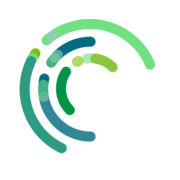NATIONAL INSTITUTES OF HEALTH

- Country
- 🇺🇸United States
- Ownership
- Subsidiary, Private
- Established
- 1948-01-01
- Employees
- 1K
- Market Cap
- -
- Website
- http://www.nidcr.nih.gov
Clinical Trials
4.1k
Trial Phases
6 Phases
Drug Approvals
0
Drug Approvals
No drug approvals found
This company may not have drug approvals in our database
Clinical Trials
Distribution across different clinical trial phases (3411 trials with phase data)• Click on a phase to view related trials
Testing the SurVaxM Vaccine for Lung Cancer Prevention
- Conditions
- Lung Carcinoma
- Interventions
- Procedure: Biospecimen CollectionOther: Questionnaire Administration
- First Posted Date
- 2025-09-12
- Last Posted Date
- 2025-09-12
- Lead Sponsor
- National Cancer Institute (NCI)
- Target Recruit Count
- 80
- Registration Number
- NCT07169617
- Locations
- 🇺🇸
Rocky Mountain Regional VA Medical Center, Aurora, Colorado, United States
🇺🇸Northwestern University, Chicago, Illinois, United States
🇺🇸Roswell Park Cancer Institute, Buffalo, New York, United States
Phase I Trial Integrating HLA-Haploidentical Anti-CD19 CAR-T Cells With Post-Transplantation Cyclophosphamide-Based HLA-Haploidentical Hematopoietic Cell Transplantation
- Conditions
- Hematologic MalignanciesHematologic Neoplasms
- Interventions
- Biological: mCD19-CAR-CD28-CD3-zeta.(anti-CD19 CAR) retroviral vector-transduced allogeneic peripheral blood lymphocytes (PBL)Device: CD19 Flow Cytometry AssayDevice: CD19 Immunohistochemical AssayRadiation: Total Body Irradiation
- First Posted Date
- 2025-09-09
- Last Posted Date
- 2025-09-16
- Lead Sponsor
- National Cancer Institute (NCI)
- Target Recruit Count
- 155
- Registration Number
- NCT07162038
- Locations
- 🇺🇸
National Institutes of Health Clinical Center, Bethesda, Maryland, United States
Testing the Addition of an Anti-Cancer Drug, Camonsertib, to Radiation Therapy for Recurrent Head and Neck Squamous Cell Carcinoma
- Conditions
- Clinical Stage III HPV-Mediated (p16-Positive) Oropharyngeal Carcinoma AJCC v8Recurrent Head and Neck Squamous Cell CarcinomaRecurrent Hypopharyngeal Squamous Cell CarcinomaRecurrent Laryngeal Squamous Cell CarcinomaRecurrent Oral Cavity Squamous Cell CarcinomaRecurrent Oropharyngeal Squamous Cell CarcinomaRecurrent Paranasal Sinus Squamous Cell CarcinomaStage III Head and Neck Cutaneous Squamous Cell Carcinoma AJCC v8Stage III Hypopharyngeal Carcinoma AJCC v8Stage III Laryngeal Cancer AJCC v8
- Interventions
- Procedure: Biospecimen CollectionProcedure: Computed TomographyProcedure: Positron Emission TomographyRadiation: Stereotactic Body Radiation Therapy
- First Posted Date
- 2025-09-05
- Last Posted Date
- 2025-09-05
- Lead Sponsor
- National Cancer Institute (NCI)
- Target Recruit Count
- 39
- Registration Number
- NCT07156227
Testing the Use of an IDH1 Inhibitor, Olutasidenib, in Acute Myeloid Leukemia Added to ASTX727 and Venetoclax; in High-Risk MDS Added to ASTX727; and Alone in Low Risk MDS (A MyeloMATCH Treatment Substudy)
- Conditions
- Acute Myeloid LeukemiaMyelodysplastic Syndrome
- Interventions
- Procedure: Biospecimen CollectionProcedure: Bone Marrow AspirationProcedure: Bone Marrow Biopsy
- First Posted Date
- 2025-09-04
- Last Posted Date
- 2025-09-16
- Lead Sponsor
- National Cancer Institute (NCI)
- Target Recruit Count
- 132
- Registration Number
- NCT07153497
Testing the Effectiveness of the Anti-cancer Drug Pidnarulex (CX-5461) in Combination With Another Anti-cancer Drug Cemiplimab (REGN2810), in Treating Refractory Microsatellite Stable Colorectal Cancer
- Conditions
- Metastatic Colorectal AdenocarcinomaRefractory Colorectal AdenocarcinomaStage III Colorectal Cancer AJCC v8Stage IV Colorectal Cancer AJCC v8Unresectable Colorectal Adenocarcinoma
- Interventions
- Procedure: Biospecimen CollectionProcedure: Biopsy ProcedureProcedure: Computed TomographyProcedure: Magnetic Resonance ImagingProcedure: Positron Emission Tomography
- First Posted Date
- 2025-08-29
- Last Posted Date
- 2025-09-08
- Lead Sponsor
- National Cancer Institute (NCI)
- Target Recruit Count
- 86
- Registration Number
- NCT07147231
- Prev
- 1
- 2
- 3
- 4
- 5
- 809
- Next
News
Drug Hunter Secures Seed Investment to Expand Knowledge Platform for Pharmaceutical R&D
Drug Hunter, a knowledge platform serving over 200 pharmaceutical R&D organizations including Eli Lilly, Biogen, and NIH, announced seed funding led by Teamworthy Ventures to accelerate drug discovery insights.
MIT Researchers Develop Bottlebrush Polymer Technology to Dramatically Increase Cancer Drug Payload Delivery
MIT chemists have developed antibody-bottlebrush conjugates (ABCs) that can deliver hundreds of drug molecules per antibody, compared to the maximum of eight in current FDA-approved ADCs.
LinusBio Develops First Hair-Based Biomarker for ALS Detection Using Copper Patterns
LinusBio published research in The Lancet's eBioMedicine demonstrating a novel hair-based biomarker for ALS detection using copper-related elemental patterns.
Stanford University Receives Double-Digit Million NIH Grant for Phase II Trial of Tiprelestat in Pulmonary Arterial Hypertension
Stanford University has been awarded a double-digit million dollar NIH grant to conduct a Phase II trial of Tiprelestat for pulmonary arterial hypertension, with patient enrollment expected to begin in mid-2026.
BridgeBio's Encaleret Achieves Calcium Normalization in 80% of Post-Surgical Hypoparathyroidism Patients
BridgeBio's oral calcilytic encaleret demonstrated parathyroid hormone-independent normalization of blood and urine calcium in a Phase 2 proof-of-concept study for post-surgical hypoparathyroidism.
Novaremed Completes Patient Enrollment in NIH-Funded Phase 2b Trial of Non-Opioid Nispomeben for Diabetic Neuropathy Pain
Novaremed has completed the last patient visit for 127 participants in its NIH-funded Phase 2b trial evaluating nispomeben for chronic pain associated with diabetic peripheral neuropathy.
Circurna Partners with GATC Health to Accelerate Circular RNA Therapeutics Using AI Platform
Circurna and GATC Health announced a strategic partnership to apply advanced AI technology for optimizing circular RNA therapeutics development.
Lighthouse Pharmaceuticals Secures $49.2 Million NIH Grant for Novel Alzheimer's Disease Treatment Targeting Bacterial Infection
Lighthouse Pharmaceuticals received a $49.2 million grant from the National Institute on Aging to advance Phase 2 trials of LHP588, targeting Porphyromonas gingivalis infections in Alzheimer's disease patients.
U.S. Senate Backs Expanded Clinical Trial Endpoints for Alcohol Use Disorder, Boosting Adial's AD04 Development Strategy
The U.S. Senate Appropriations Committee passed bipartisan legislation encouraging the FDA to develop alternative clinical trial endpoints for Alcohol Use Disorder beyond abstinence, including reduced cravings and decreased disorder severity.
Wistar Institute Launches $17 Million Personalized HIV Cure Initiative with Six-Component Therapy Approach
The Wistar Institute received a five-year, $17 million NIH grant to launch the iCure Consortium, developing individualized cure regimens for HIV through personalized medicine approaches.
